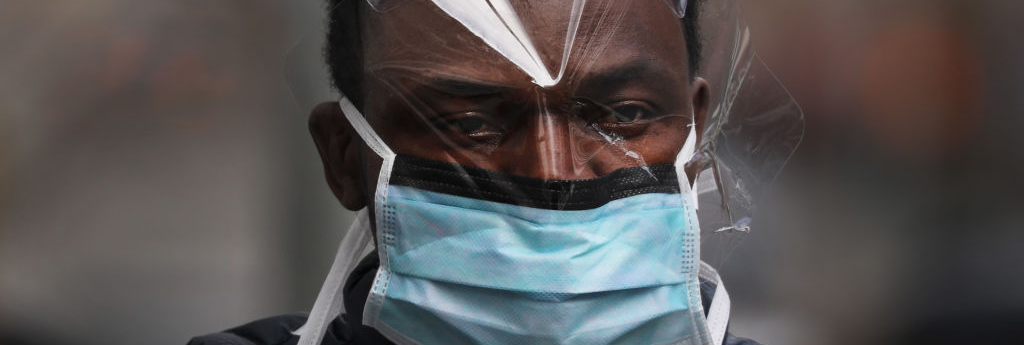A week and a half ago, the Centers for Disease Control and Prevention (CDC) recommended that Americans wear cloth masks while out in public during the coronavirus pandemic. Immediately afterward, a majority (55%) of Americans in last week’s Economist/YouGov Poll said they would follow that guideline.
And they have. This week, 53 percent of Americans report having worn a mask in public, up from 34 percent last week.
Two of the biggest jumps in wearing masks are among those 65 and older, for whom the virus is particularly dangerous, and among Black Americans, whose share of deaths from COVID-19 far exceeds their share of the population.
For Black Americans, in particular, the impact of the virus on them and on the country has changed opinions. They are eleven points more likely than white Americans to be very concerned about an epidemic in their own communities, and ten points more likely to be very concerned about a national epidemic.
More than half (51%) of the public overall and three in five (60%) Black Americans are very concerned about a national epidemic. A similar trend occurs when examining concern over a local epidemic. Just over a quarter (26%) of Americans say they are very concerned about a local epidemic, but that figure increases to 35 percent among Black Americans.
Personal knowledge of people who have had the virus is higher among Black Americans. They are twice as likely as white Americans to report a family member or close friend who has died from COVID-19. 7 percent of white Americans know someone who has died from COVID-19 but 14 percent of Black Americans do.
Knowledge of people who have died is greatest in the Northeast, where the number of cases and deaths make up about half of all those in the country: 18 percent of adults there have a close friend or family member who has died from the virus. Black Americans (27%) are also more likely than white Americans (13%) to know someone who has tested positive.
The public is twice as likely to believe the number of coronavirus deaths have been underreported as to say the numbers are exaggerated. This isn’t a matter of race, but it is somewhat a matter of partisanship. Democrats overwhelmingly say the virus has killed more people than reported; Republicans are divided, with as many saying deaths have been exaggerated as believing there are more than have been reported.
On Tuesday, after the poll was completed, New York State revised its death total upwards.
Despite the racial disparity in experiencing the virus’ impact, Black Americans are not much more likely to worry about personally contracting the virus. Two-thirds of white Americans and 71 percent of Black Americans are very or somewhat worried about contracting COVID-19. Most Americans, male and female, Democrat and Republican both, are worried. Concern rose a month ago, as the social distancing requirements were promulgated.
Not only do many Black Americans report closeness to the disease, but they also are more pessimistic about the future. About half (51%) believe it is going to take several months or more before social distancing rules can be ended, nine points higher than the share of white Americans who think this. One in four white respondents expects social distancing rules will end by May 1, just 5 percent of black respondents agree.
Looking ahead, Black Americans are pessimistic about what this pandemic will mean for the strength and unity of the country. Whites believe that the pandemic will make the US stronger, while blacks disagree. They are also less sure than white Americans that the struggle against the virus will unite the nation.
Most Americans, white and black, agree that the pandemic will lead to a recession. About two-thirds (65%) think COVID-19 will lead to a recession, and most (54%) believe the recession is already here. One in four Black Americans says they will feel it harder than most Americans. One in three says it will have a very serious impact on their personal financial situation.
Economic distress has hit the country hard in the last month. This week, a majority (56%) of Americans report the economy as getting worse, as they did last week, more than twice the number who said that just two months ago.
See the toplines and tables from this week’s Economist/YouGov Poll
Related: What these Americans think of Barack Obama’s endorsement video for Joe Biden
Image: Getty








